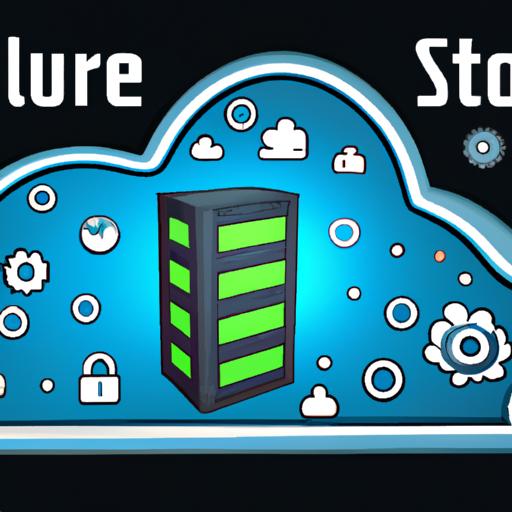Informatica Cloud Data Integration: Streamline Your Data with Ease
Data integration is a critical aspect of any modern business. The ability to seamlessly connect, transform, and manage data across various systems and applications is vital for efficient operations and informed decision-making. In this era of cloud computing, businesses need a robust and flexible solution that can handle the complexities of data integration in a dynamic environment. This is where informatica cloud data integration comes in.
A Brief Overview of Informatica Cloud Data Integration
Informatica Cloud Data Integration is a cutting-edge cloud-based platform that empowers businesses to integrate and synchronize data across multiple sources, both on-premises and in the cloud. With its intuitive interface and comprehensive suite of tools, Informatica Cloud Data Integration simplifies the process of extracting, transforming, and loading (ETL) data, enabling organizations to unlock the true potential of their data.
Importance and Benefits of Using Informatica Cloud Data Integration
In today’s fast-paced business landscape, data is generated at an unprecedented rate from various sources such as customer interactions, social media, IoT devices, and more. The ability to harness this data and derive actionable insights is crucial for gaining a competitive edge. Informatica Cloud Data Integration offers several key benefits that make it an indispensable tool for businesses:
-
Seamless Integration: Informatica Cloud Data Integration seamlessly connects disparate data sources, whether they are on-premises or in the cloud. This ensures that businesses have a unified view of their data, enabling better decision-making and improved operational efficiency.
-
Flexibility and Scalability: As businesses grow and evolve, their data integration needs change. Informatica Cloud Data Integration provides the flexibility and scalability required to handle increasing volumes of data and adapt to evolving business requirements. Whether it’s integrating new applications, onboarding new data sources, or scaling up/down resources, Informatica Cloud Data Integration can effortlessly accommodate these changes.
-
Time and Cost Savings: Traditional data integration methods often involve complex coding and lengthy development cycles. Informatica Cloud Data Integration simplifies the process with its intuitive drag-and-drop interface and pre-built connectors. This eliminates the need for extensive coding and significantly reduces development time and costs.
Understanding How Cloud Data Integration Works
Cloud data integration involves the seamless flow of data between on-premises systems and cloud-based applications. Informatica Cloud Data Integration achieves this through a combination of connectors, data mappings, and transformations.
First, Informatica Cloud Data Integration connects to the various data sources, which can include databases, SaaS applications, social media platforms, and more. It then maps the data from these sources to a unified data model, ensuring consistency and accuracy. The platform also provides powerful transformation capabilities, allowing businesses to cleanse, enrich, and aggregate data as required.
Once the data is transformed, Informatica Cloud Data Integration loads it into the target systems, whether they are data warehouses, analytics platforms, or other applications. The entire process is orchestrated and monitored through a centralized interface, providing businesses with full visibility and control over their data integration workflows.
In the next section, we will delve into the key features and capabilities of Informatica Cloud Data Integration, showcasing how it empowers businesses to unlock the true potential of their data.
Key Features and Capabilities of Informatica Cloud Data Integration
Informatica Cloud Data Integration offers a comprehensive suite of features and capabilities that empower businesses to seamlessly integrate and manage their data. Let’s explore some of its essential features and their benefits:
1. Data Connectivity and Integration
Informatica Cloud Data Integration provides a wide range of connectors that enable businesses to connect and integrate data from various sources. These connectors support popular databases, applications, cloud platforms, and more. By leveraging this feature, businesses can easily extract data from disparate sources and bring it together for analysis and decision-making.
2. Data Mapping and Transformation
With Informatica Cloud Data Integration, businesses can map and transform their data to meet specific requirements. This feature allows for data cleansing, enrichment, aggregation, and other transformations, ensuring the accuracy and consistency of the integrated data. By transforming the data on-the-fly, businesses can derive valuable insights and make informed decisions based on reliable information.
3. Real-Time Data Integration
Informatica Cloud Data Integration offers real-time data integration capabilities, allowing businesses to capture and process data as it is generated. This feature is particularly valuable for time-sensitive applications, such as real-time analytics, fraud detection, and customer experience management. By continuously integrating and analyzing data in real-time, businesses can respond swiftly to changing market conditions and make proactive decisions.
4. Data Quality and Governance
Maintaining data quality and governance is crucial for ensuring data accuracy, compliance, and trustworthiness. Informatica Cloud Data Integration provides robust data quality and governance features that enable businesses to profile, cleanse, and validate their data. This ensures that only high-quality data is integrated and used for decision-making, minimizing the risk of errors, redundancies, and compliance issues.
Leveraging the Features for Data Integration
Let’s consider an example of how businesses can leverage the features of Informatica Cloud Data Integration for data integration. Imagine a retail company that wants to integrate customer data from its e-commerce platform, CRM system, and social media channels. With Informatica Cloud Data Integration, the company can easily connect to these data sources using pre-built connectors. They can then map and transform the data to create a unified customer profile, enriching it with social media interactions and CRM data. By leveraging real-time data integration, the company can continuously update the customer profile and gain real-time insights into customer behavior. This enables them to personalize marketing campaigns, improve customer satisfaction, and drive revenue growth.
In the next section, we will explore real-world use cases of Informatica Cloud Data Integration, demonstrating its effectiveness across different industries and sectors.
Use Cases of Informatica Cloud Data Integration
Informatica Cloud Data Integration has proven to be a game-changer for businesses across various industries. Let’s explore some real-world use cases where organizations have successfully leveraged the power of Informatica Cloud Data Integration to streamline their data integration processes and drive tangible results.
1. Retail Industry
In the fast-paced retail industry, having accurate and up-to-date data is crucial for optimizing inventory management, improving customer experience, and driving sales. Informatica Cloud Data Integration enables retailers to integrate data from various sources, such as point-of-sale systems, e-commerce platforms, and customer relationship management (CRM) tools. By consolidating this data, retailers gain a comprehensive view of their operations, allowing them to make data-driven decisions regarding inventory planning, demand forecasting, and personalized marketing campaigns.
2. Healthcare Sector
The healthcare sector deals with vast amounts of patient data generated from electronic health records (EHR), medical devices, and wearable technologies. Informatica Cloud Data Integration helps healthcare organizations seamlessly integrate and synchronize this data, enabling a holistic view of patient information. This facilitates efficient care coordination, improves patient outcomes, and enhances operational efficiency. Additionally, by integrating data from research studies and clinical trials, healthcare providers can gain valuable insights for medical advancements and personalized treatments.
3. Financial Services
Financial institutions handle extensive data related to transactions, customer accounts, risk management, and compliance. Informatica Cloud Data Integration aids financial services organizations in integrating data from various systems, including core banking systems, payment gateways, and regulatory databases. This ensures data accuracy, regulatory compliance, and enables real-time insights into customer behavior, fraud detection, and risk assessment. By harnessing the power of this integrated data, financial institutions can drive personalized customer experiences, optimize operations, and mitigate risks effectively.
Case Studies: Success Stories
Numerous businesses have experienced significant benefits by implementing Informatica Cloud Data Integration. For instance, a leading global retailer utilized Informatica Cloud Data Integration to consolidate customer data from multiple channels, resulting in improved customer segmentation and targeted marketing campaigns. This led to a substantial increase in customer engagement and sales revenue.
Another success story comes from a healthcare organization that implemented Informatica Cloud Data Integration to integrate clinical data from different sources. This enhanced their ability to provide personalized patient care, reduced administrative burden, and improved overall operational efficiency.
These use cases and success stories demonstrate the versatility and effectiveness of Informatica Cloud Data Integration across industries. Regardless of the sector, organizations can leverage this powerful tool to integrate and synchronize data, gaining valuable insights, improving decision-making, and driving business growth.
In the next section, we will explore how to implement Informatica Cloud Data Integration, providing a step-by-step guide and best practices for a successful implementation process.
Implementing Informatica Cloud Data Integration: A Step-by-Step Guide
Setting Up and Configuring Informatica Cloud Data Integration
Implementing Informatica Cloud Data Integration involves a series of steps to ensure a seamless and successful integration process. Here is a step-by-step guide to help you get started:
-
Assess Your Data Integration Needs: Before diving into the implementation process, it’s essential to assess your data integration requirements. Identify the data sources you need to integrate, the desired outcome, and any specific challenges or constraints you may encounter.
-
Choose the Right Edition of Informatica Cloud Data Integration: Informatica offers different editions of its Cloud Data Integration platform, catering to various business needs. Select the edition that aligns with your data integration requirements, whether it’s the standard edition for basic integration or the advanced edition for enterprise-level capabilities.
-
Set Up Your Informatica Cloud Account: Create an account on the Informatica Cloud platform and set up the necessary configurations. This involves providing your organization’s details, defining user roles and permissions, and establishing connectivity with your data sources.
-
Configure Connections and Data Sources: Connect Informatica Cloud Data Integration to your data sources by configuring the necessary connections. This may involve specifying connection details, credentials, and access permissions for each source.
-
Design Data Integration Workflows: Utilize the intuitive drag-and-drop interface of Informatica Cloud Data Integration to design your data integration workflows. Define the sequence of tasks, transformations, and mappings required to extract, transform, and load data from the source to the target systems.
Best Practices for Implementing Informatica Cloud Data Integration
To ensure a smooth and successful implementation of Informatica Cloud Data Integration, consider the following best practices:
-
Plan for Scalability: Anticipate future growth and design your integration workflows to accommodate increasing volumes of data and evolving business needs. This includes designing workflows that can handle parallel processing, optimizing resource allocation, and implementing error handling mechanisms.
-
Ensure Data Quality and Consistency: Prioritize data quality by incorporating data cleansing and validation steps in your integration workflows. Implement data quality rules, perform data profiling, and establish data governance practices to ensure consistent and reliable data across systems.
Tips for a Smooth and Successful Implementation Process
To make the most of Informatica Cloud Data Integration, keep the following tips in mind during the implementation process:
-
Engage Stakeholders: Involve key stakeholders from different departments to gain a comprehensive understanding of their data integration needs. Collaborate closely with them throughout the implementation process to ensure alignment and gather valuable feedback.
-
Train Your Team: Provide adequate training and resources to your team members who will be working with Informatica Cloud Data Integration. Familiarize them with the platform’s features, functionalities, and best practices to maximize their efficiency and productivity.
By following these implementation best practices and tips, you can unlock the full potential of Informatica Cloud Data Integration and seamlessly integrate your data for informed decision-making and business success.
In the next section, we will explore the benefits and advantages of Informatica Cloud Data Integration, showcasing why it is the go-to solution for businesses seeking streamlined data integration.
Benefits and Advantages of Informatica Cloud Data Integration
Informatica Cloud Data Integration offers a multitude of benefits that empower businesses to optimize their data integration processes and extract maximum value from their data. Let’s explore some of the key advantages this powerful platform brings:
Streamlined Data Integration Process
Informatica Cloud Data Integration simplifies and streamlines the data integration process, making it faster and more efficient. With its user-friendly interface and drag-and-drop functionality, businesses can easily create data integration workflows without the need for extensive coding or technical expertise. This reduces development time and allows organizations to quickly respond to changing business needs.
Comprehensive Connectivity
Informatica Cloud Data Integration provides a wide range of pre-built connectors, enabling seamless integration with various data sources and applications. Whether it’s connecting to on-premises databases, cloud-based platforms, or SaaS applications, Informatica’s extensive library of connectors ensures compatibility and smooth data flow. This comprehensive connectivity eliminates the need for custom integrations and enables businesses to leverage their existing technology investments.
Enhanced Data Quality and Governance
Maintaining data integrity and ensuring its quality is crucial for accurate decision-making. Informatica Cloud Data Integration offers robust data quality capabilities, allowing businesses to cleanse, validate, and standardize data during the integration process. This helps eliminate duplicate records, correct inaccuracies, and ensure data consistency across systems. Additionally, Informatica Cloud Data Integration provides advanced data governance features, enabling businesses to enforce data policies, monitor data lineage, and comply with regulatory requirements.
Scalability and Flexibility
Informatica Cloud Data Integration is designed to scale with the growing needs of businesses. The platform can handle large volumes of data and accommodate increasing data integration demands. Whether it’s handling massive data migrations or integrating new applications and systems, Informatica Cloud Data Integration provides the scalability and flexibility required to meet evolving business requirements.
Competitive Edge in the Market
In a competitive business landscape, timely access to accurate data is crucial for gaining a competitive edge. Informatica Cloud Data Integration enables businesses to harness the power of their data, providing real-time insights and enabling informed decision-making. By integrating data from various sources and applications, organizations can gain a holistic view of their operations, customers, and market trends, enabling them to make data-driven decisions that drive growth and success.
Choosing Informatica Cloud Data Integration over Competitors
Informatica Cloud Data Integration stands out from its competitors due to its comprehensive features, ease of use, and industry recognition. It has been consistently recognized by analysts as a leader in the data integration space, showcasing its expertise and reliability. With a strong track record of successful implementations across various industries, Informatica Cloud Data Integration has proven to be a trusted solution that delivers tangible results.
In the next section, we will explore real-world use cases of Informatica Cloud Data Integration, highlighting how businesses have leveraged its capabilities to achieve their data integration goals.
Conclusion
In the ever-evolving landscape of data integration, Informatica Cloud Data Integration stands out as a powerful and versatile solution for businesses of all sizes. By seamlessly connecting and synchronizing data from various sources, both on-premises and in the cloud, Informatica Cloud Data Integration empowers organizations to make informed decisions, improve operational efficiency, and gain a competitive advantage.
With its intuitive interface, comprehensive suite of tools, and robust capabilities, Informatica Cloud Data Integration simplifies the complex process of data integration. It provides businesses with the flexibility and scalability they need to adapt to changing data requirements and evolving business needs. By leveraging the power of the cloud, Informatica Cloud Data Integration enables organizations to streamline their data integration workflows and unlock the true potential of their data.
The benefits of using Informatica Cloud Data Integration are numerous. It saves businesses time and costs by eliminating the need for extensive coding and reducing development cycles. The platform offers seamless integration, ensuring a unified view of data from various sources. It also provides powerful transformation capabilities, allowing businesses to cleanse, enrich, and aggregate data as required. With Informatica Cloud Data Integration, businesses can make data-driven decisions, drive innovation, and stay ahead in today’s data-centric world.
In conclusion, Informatica Cloud Data Integration is a game-changer for businesses seeking to optimize their data integration processes. Its user-friendly interface, flexibility, scalability, and powerful features make it an indispensable tool for businesses across industries. By harnessing the potential of Informatica Cloud Data Integration, organizations can unlock the true value of their data and gain a competitive edge in the digital era.
Are you ready to embark on a data integration journey that will revolutionize the way you manage and leverage your data? Explore Informatica Cloud Data Integration today and witness the transformative power it holds for your business.





